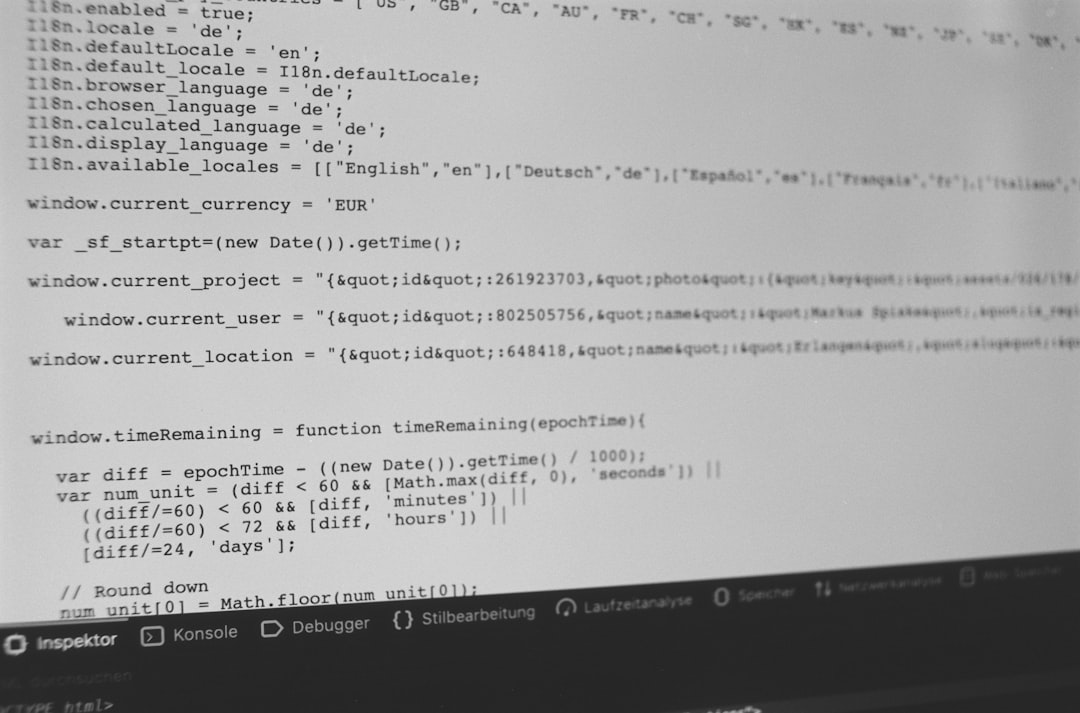In today’s data-driven world, organizations depend heavily on data to make decisions, improve processes, and drive innovation. At the heart of this data-centric ecosystem is the Database Analyst—a professional who ensures that data is well-organized, accessible, and used effectively. With industries increasingly seeking optimized data management and storage, the role of the database analyst has become more crucial than ever.
What is a Database Analyst?
A Database Analyst (DB Analyst) is responsible for the design, implementation, and maintenance of databases that meet a company’s information storage and retrieval needs. They interpret business requirements and convert them into scalable solutions by organizing data within secure and efficient database systems.
Beyond simply managing data, database analysts are often involved in analyzing datasets for trends, generating reports to inform business decisions, and ensuring data integrity and security. Working closely with database administrators (DBAs), software developers, and business leaders, they act as a bridge between the technical data layer and business strategy.

Key Responsibilities of a Database Analyst
- Data Modeling: Designing the structure of a database by understanding data flows and business requirements.
- Query Writing: Creating and optimizing SQL queries to extract, update, or delete data as needed.
- Data Integrity & Security: Ensuring that the data remains accurate and secure from unauthorized access or corruption.
- Performance Tuning: Monitoring and enhancing the performance of databases for faster data retrieval and storage.
- Reporting: Developing dashboards and reports to deliver actionable insights to stakeholders.
- Collaboration: Working closely with IT teams, decision-makers, and end users to understand and fulfill data-related needs.
Essential Skills for a Successful Database Analyst
To perform effectively as a database analyst, individuals need a combination of technical aptitude and business acumen. Below are some essential skills required for this role:
- Proficiency in SQL: Being fluent in Structured Query Language is a must for manipulating and querying databases.
- Data Modeling & Design: Understanding how to structure relational and non-relational data systems efficiently.
- Analytical Thinking: The ability to analyze large data sets and convert them into meaningful insights.
- Data Warehousing: Experience in building and maintaining data warehouse environments is often valuable.
- ETL Processes: Extract, Transform, and Load skills are required to move data between systems.
- Communication Skills: Explaining technical findings and strategies to non-technical stakeholders effectively.
- Database Tools: Familiarity with systems like Microsoft SQL Server, Oracle, MySQL, PostgreSQL, and BI tools such as Tableau or Power BI.

Educational Requirements
Most database analysts hold a bachelor’s degree in fields such as computer science, information technology, or data science. While a degree is the typical entry point, certifications can significantly boost career prospects. Some well-regarded certifications include:
- Microsoft Certified: Azure Data Fundamentals
- Oracle Database SQL Certified Associate
- IBM Certified Database Administrator
- Certified Data Management Professional (CDMP)
Additionally, continuing education through bootcamps, workshops, or online platforms such as Coursera and Udacity helps keep skills up to date in a continuously evolving field.
Average Salary for Database Analysts
The salary for a database analyst varies based on experience, location, and industry. However, according to current job market data:
- Entry-Level: $50,000 to $70,000 annually
- Mid-Level: $70,000 to $95,000 annually
- Senior-Level: $95,000 to $120,000 or more annually
Certain industries such as finance, healthcare, and technology may offer premium compensation due to the critical nature of data in their operations.
Career Path and Advancement
The career path for a database analyst is filled with growth opportunities. Here’s how a typical progression may look:
- Entry-Level Analyst: Focuses on supporting existing databases and running queries.
- Mid-Level Analyst: Takes on database development, modeling, and reporting responsibilities.
- Senior Database Analyst: Leads strategic projects and may manage junior staff.
- Database Administrator or Data Architect: Moves into a more specialized and strategic role concerning database infrastructure and design.
- Chief Data Officer (CDO) or Data Science Manager: For professionals who combine leadership with deep data expertise, executive roles are within reach.
Professionals can also pivot into related roles such as Data Scientist, Business Intelligence Analyst, or Machine Learning Engineer, making it a versatile career foundation.
Industries Hiring Database Analysts
Nearly every sector today relies on data, and thus, database analysts are in high demand. The top industries hiring include:
- Finance and Banking
- Healthcare and Life Sciences
- Retail and E-commerce
- Government and Public Sector
- Education
- Telecommunications
- Information Technology and Software Services
Final Thoughts
A career as a database analyst offers both stability and the opportunity for upward mobility. By mastering data systems, improving organizational efficiency, and enabling smarter business decisions, these professionals play a pivotal role in a company’s success. With growing emphasis on data literacy in all sectors, demand for skilled analysts is only going to increase in the years to come.

Frequently Asked Questions (FAQ)
-
What is the difference between a Database Administrator and a Database Analyst?
While both roles deal with database systems, a Database Administrator (DBA) focuses more on the maintenance, backup, and security of databases. In contrast, a Database Analyst is more involved in analyzing and modeling data and making strategic decisions based on data insights. -
Do you need a computer science degree to become a database analyst?
Although a computer science or related degree is common, many analysts come from mathematics, engineering, or even business backgrounds, especially if they have strong analytical and technical skills. -
Is coding essential for database analysts?
Yes, familiarity with SQL is essential. Knowledge of other programming languages, such as Python or R, is a plus for advanced data analysis and automation. -
Can a database analyst work remotely?
Absolutely. Many database analyst roles, particularly in the IT industry, offer remote or hybrid work settings. -
What tools do database analysts use?
Common tools include SQL Server, Oracle, MySQL, PostgreSQL, Microsoft Access, and BI tools like Power BI, Tableau, and Excel.


